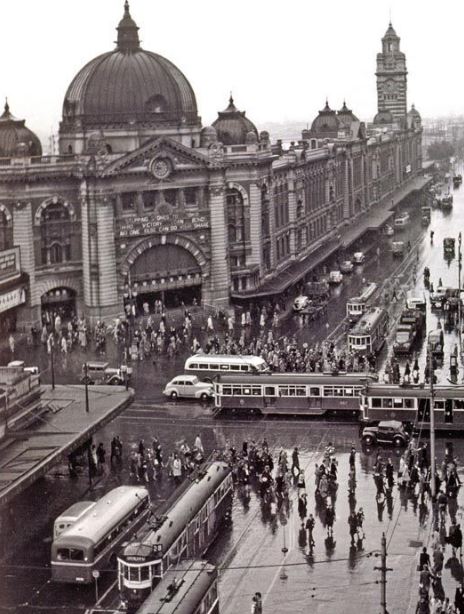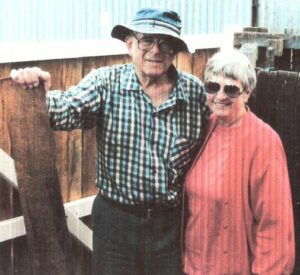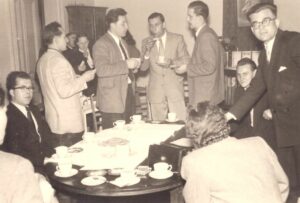Karel Halla
I come from Martinkovice near Broumov. I left Czechoslovakia as a nineteen-year-old in October 1949 at some risk across the Soviet zone to West Berlin.
I arrived in Australia for the first time on August 17, 1950. It was after a fifteen day voyage from Bremerhaven on the ship Fairsea. From the Melbourne harbor they took us to the Bonegilla camp on the border of the states of Victoria and New South Wales. While on the train an interesting situation occurred. The train stood a long time by the Flinders Street station in Melbourne, and from the windows we saw a large Indian style building. So a rumor spread that they took us to India, and this caused considerable uproar. The matter was resolved at the first stop in the town of Seymour where they prepared for us a rich banquet of food the likes of which we never saw during the war or even after it. We ended up in a camp where we were to learn English, and to adapt to the Australian environment. We were especially surprised and disappointed by the cruel winter that awaited us there. We were under the impression that Australia is a warm country, and furthermore, we experienced weeks of tropical heat on the ship. But at night in the camp the blankets were not enough. Everyone added on his blanket whatever he had in his suitcase – books, magazines, ties, shoes, under the impression that he will warm up a bit. How we cursed that in Germany before departure we sold our coats, sweaters, and scarves!
We were especially surprised and disappointed by the cruel winter that awaited us there.

Every morning people ran to the labor office to see if there is work for them there. Finally, they gave me work in Licola west of Melbourne in the distant bush country where we were to built a sawmill. I got money for the trip with which I bought chocolate right away and traveled by train. By way of welcome they gave us a bundle of hay so that each of us would make a bed out of it. The conditions there were very difficult, and I did what I could to get to civilization. Finally in the year 1952 I got a job in Melbourne in the St. Vincent hospital in the Fitzroy quarter. I washed floors, windows, toilets, and I also burned, in the boiler room, organs extracted during operations. Many of the surgical instruments they had were from the 19th century. In the hallway on the third floor they drew blood from donors. There I came to the conclusion that every healthy person should regularly donate blood. During the course of my life, I managed to reach hundred and four donations. My salary was twelve pounds a week. I saved a good deal there because I ate leftovers in the kitchen for the doctors.
I became close friends with Stanislav Hofirek, a lawyer and a former People’s Party politician. I rented a small apartment on Dryburgh Street in a house that belonged to an old lady that might have been a hundred years old. Here we had “political meetings” of the émigrés in Melbourne where we made up fantastic plans for the liberation of the republic from the communists.
The fifties in Australia were a time of feverish building activity. There was no building during the war, suddenly thousands of immigrants started arriving, so there was a horrendous shortage of houses and apartments. On the outskirts of Melbourne new neighborhoods were created, meadows and fields were parceled. Plots were for sale, mostly fifty meters wide. When a person saved some pounds, he right away started looking to buy and attended auctions. It was necessary to hurry, as prices rose every month.
The fifties in Australia were a time of feverish building activity.
In January 1953 I returned by boat to Europe because I thought that communism would soon fall. In a German newspaper I read an offer of well paid work in Charleroi, Belgium in coal mines. I applied, and together with 400 new miners, I was to report for work. But then my train from Munich was delayed. Meanwhile there was a big explosion in the mine which killed many people. Only by lucky coincidence I was not among them. I took it as a clear sign, and returned to Australia where I live to this day. For years I taught elementary school, was active in Czech community, was involved with the arrival of Vietnamese refugees who fought against communists. Today I live in Ascot Vale, not far from Melbourne, together with two cats and a granddaughter who is studying astrophysics.





